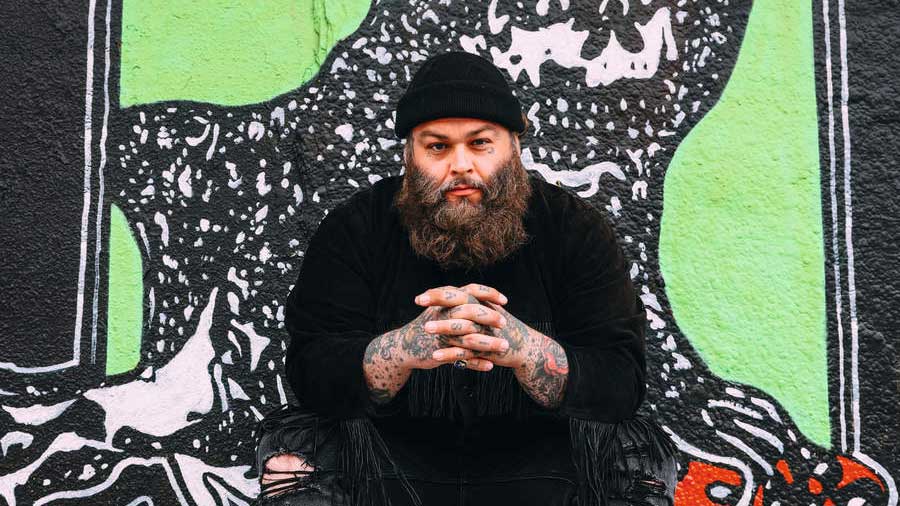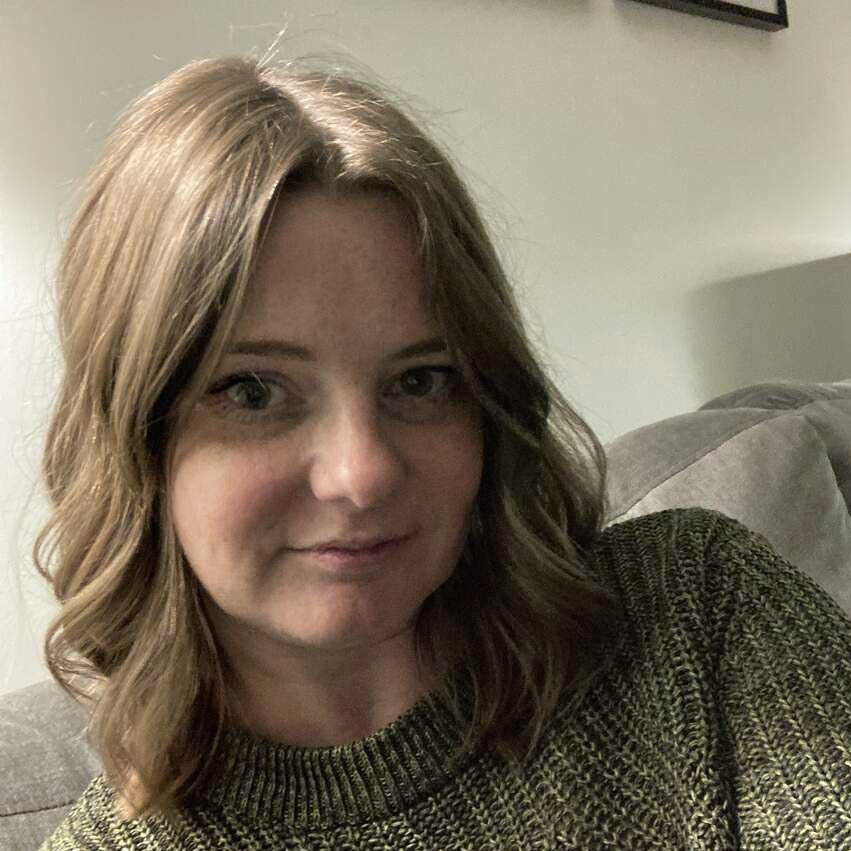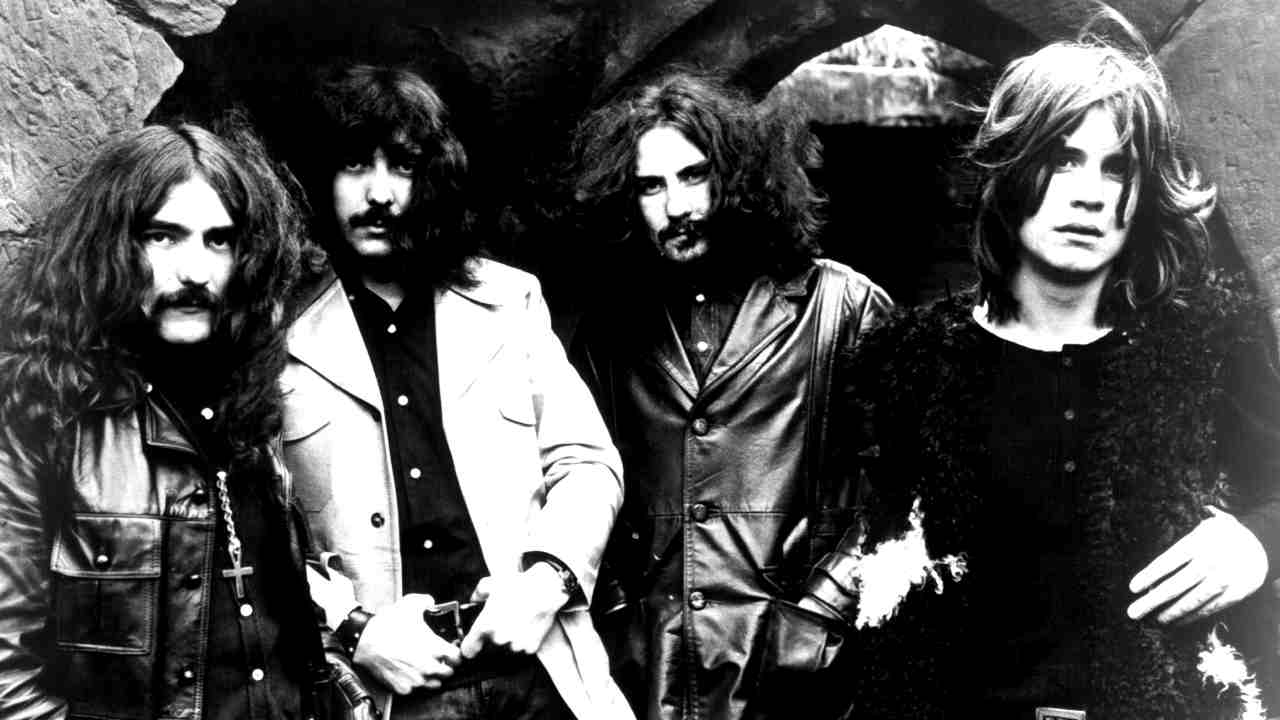Dooms Children: rehab, redemption, and the healing power of the Grateful Dead
Having sunk into a dark hole of depression, Alexisonfire guitarist/Gallows frontman Wade MacNeil found the light with his psychedelic new project, Dooms Children

Select the newsletters you’d like to receive. Then, add your email to sign up.
You are now subscribed
Your newsletter sign-up was successful
Want to add more newsletters?

Every Friday
Louder
Louder’s weekly newsletter is jam-packed with the team’s personal highlights from the last seven days, including features, breaking news, reviews and tons of juicy exclusives from the world of alternative music.

Every Friday
Classic Rock
The Classic Rock newsletter is an essential read for the discerning rock fan. Every week we bring you the news, reviews and the very best features and interviews from our extensive archive. Written by rock fans for rock fans.

Every Friday
Metal Hammer
For the last four decades Metal Hammer has been the world’s greatest metal magazine. Created by metalheads for metalheads, ‘Hammer takes you behind the scenes, closer to the action, and nearer to the bands that you love the most.

Every Friday
Prog
The Prog newsletter brings you the very best of Prog Magazine and our website, every Friday. We'll deliver you the very latest news from the Prog universe, informative features and archive material from Prog’s impressive vault.
There comes a point in any punk’s life when it’s time to try something different. For Wade MacNeil, known to the world’s moshpits as guitarist with Toronto hardcore band Alexisonfire and as frontman with UK punks Gallows, that time is now.
Far from the screams of the bands that made him, his new project, Dooms Children, is a deeply beautiful meditation on depression, addiction and hopeful redemption. Written partly during his darkest hours and partly in rehab, it’s set against a swooning psych-rock background and seasoned with touches of lush Americana.
Over the past two years, while he struggled with personal demons, MacNeil delved into the Grateful Dead’s vast back catalogue – their influence can be heard throughout Dooms Children’s self-titled debut, not least in the cover of Friend Of The Devil. It’s a stunning about-face, born from those formative tours.
“My deep involvement in punk and hardcore has always made me listen to other things,” he says. “On tour I’m playing these chaotic shows every night. When I get back to the bus I’m listening to something very, very far away from that. That’s important as a way to calm yourself down and to not live in this manic state all the time.
"Especially a few years ago, I was listening to a lot more folky stuff from the sixties, a lot more psych-rock. At that time, I felt like the walls were falling down around me. I was really depressed and really struggling. I felt that the cosier music was helping me get through the days.”
It’s easy to fall into the habit of being the party guy on the road. The music industry practically demands it. MacNeil admits that he often felt that to put on the optimum show, he needed to be just the right side of fucked up.
“Which, being on the other side of that now, seems insane,” he says. “Obviously, I’m not a better singer or guitar player if I drink a bottle of Jameson’s, I’m much worse. But it seemed to make a lot of sense at the time.”
Sign up below to get the latest from Classic Rock, plus exclusive special offers, direct to your inbox!
Depression, alcoholism, drugs, destroyed relationships, rehab: it’s all there on Dooms Children. But while it’s easy to blame the rock’n’roll lifestyle, he has a learned self-destructiveness that stretches back to childhood.
MacNeil grew up in the Ontario city of St Catherines, close to Niagara Falls. His father was from Detroit, so there was always soul music on the stereo, records bearing the Motown logo, classics by Otis Redding and Sam Cooke. And being a Canadian household, Neil Young was ever-present. But family life was “very chaotic between my parents, and not really a good place to be”, making home far from the safe space it should have felt like.
“At the root of a lot of big substance issues, there’s a lot of trauma and stuff that’s not dealt with,” he says. “And then as you kind of get on with life, maybe you fall into those numbing-out aspects to try and deal with something that you’re not even really sure you’re dealing with.”
Music was his escape. Finding his own voice in heavier genres, he fell in among like-minded skateboarders and punks. It was in this scene that he met local kindred spirit George Petit, with whom he went on to form Alexisonfire and who, two decades on, remains one of his closest friends. “It was like finding my actual, chosen family. And that was like me starting to go to shows and meeting the people in the band.”
In the lead-up to writing the Dooms Children record, MacNeil was running on empty. Long, intense tours with Gallows and Alexisonfire had taken a physical and mental toll. Yet he never slowed down. He used his time off the road to host a radio show in Toronto as well as scoring and acting in a Canadian sports comedy movie Goon: Last Of The Enforcers. He was more depressed than he had ever been, but he kept pushing on.
“The real strain at the end of the day is just your relationship with yourself. Really, really hating yourself,” he says. “You can only stuff things down for so long before they all come out. I was really depressed. I was really drinking and using a lot as a way to deal with that. Trying to escape. And I was just miserable. Those were the conditions at which I started writing the Dooms Children stuff.”
Writing songs helped him take the first steps towards a better place, but entering rehab was the greatest leap. It was, he says, a wake-up call to some of his peers – with booze so normalised and encouraged on the road, it can be hard to tell there’s anything wrong. When he sought treatment, it made friends look at their own habits.
The lyrics he crafted during this period are unflinchingly honest, from Psycho Hospital Blues, in which he attempts to find meaning in a God he doesn’t believe in, to Morningstar, with its hopeful race towards a brighter future. They’re bound to strike a chord with anyone going through a similar rough patch.
Oddly, the covid era’s enforced quiet has offered respite too, a time for reflection and a slower pace of life. He says he missed playing shows terribly, but the opportunity to reset could have been a personal blessing. In the aftermath, he’s taken stock of how he wants to go about creating his music.
“Like, instead of working in a small studio the size of a closet and just cranking stuff out with apathetic people, I’ve only made music with really close friends of mine, and made it in a set-up in someone’s living room, which is what we did for this record,” he says. “Or we recorded on a farm or went away to the country. Almost all the recording sessions I’ve been involved in, there’s been chickens outside, and that’s the type of energy I’m trying to have.”
Outside the sun is shining, and as soon as we’ve finished talking, MacNeil is planning on heading out to ride his motorcycle. To decompress, take life as it comes, and enjoy the simple pleasures he can finally see in front of his face again.
“Honestly, now life is pretty good,” he says. “Musically, everything is very, very exciting. And I think on a personal level I’m doing all right."
Dooms Children is out now via Dine Alone
Emma has been writing about music for 25 years, and is a regular contributor to Classic Rock, Metal Hammer, Prog and Louder. During that time her words have also appeared in publications including Kerrang!, Melody Maker, Select, The Blues Magazine and many more. She is also a professional pedant and grammar nerd and has worked as a copy editor on everything from film titles through to high-end property magazines. In her spare time, when not at gigs, you’ll find her at her local stables hanging out with a bunch of extremely characterful horses.

